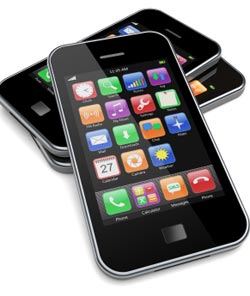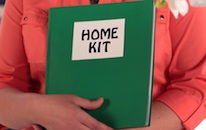8 Educational Apps That Will Challenge Your Child

by Jennifer Thayer
There are little ones addicted to technology the same way there are grownups who can’t put down their phones. By the same token there are as many amazing brain-challenging ways kids can use technology thanks to stimulating apps.
High-quality educational apps are engaging because they balance learning with fun. In fact, kids may not realize they’re learning at all. Great apps also let parents join in on the fun. Research shows that children learn more when parents play along. Here are eight truly awesome educational apps that will challenge your child and help them reach their full potential.
1. GeoBee Challenge
Does your child have what it takes to be the next National Geographic Bee Champion? Kids explore the globe with GeoBee Challenge, a MOBI Award finalist app from National Geographic. More than 1,300 National Geographic Bee questions have been packed into this interactive game, along with beautiful maps and world-famous photographs.
2. Story Dice
This app turns kids into storytellers with prompts for plot, character and setting. Story Dice is a compact idea generator that encourages creativity in children ages three and up – no reading required. Virtually roll between one and 10 dice featuring 140 pictograms designed to form the basis of single sentences or entire stories that kids can create alone or with others.
3. Stack the States
This super fun app turns learning about US states into an action-packed Tetris-like experience. Stack the States is actually four games in one (Map It, Pile Up, Puzzler and Capital Drop) — kids work to collect all 50 states while learning about capitals, locations, flags, state shapes and more. According to reviews, kids won’t want to put it down.
4. Where’s My Water
At first glance the Where’s My Water app featuring Swampy the Alligator looks like pure fun. However, the Disney app actually has a lot to teach children about physics, problem solving and thinking ahead. Players have to make smart predictions to get the water to Swampy’s water pipes in more than 100 levels of increasing difficulty.
5. HIAD
HIAD stands for Hypersonic Inflatable Aerodynamic Decelerator, NASA’s cutting edge planetary landing apparatus. In this app, kids learn what it takes to transfer cargo from space to a planet’s surface by launching a HIAD from the International Space Station and landing at a target point on Earth in various conditions using different designs.
6. Minecraft: Pocket Edition
Put simply Minecraft is a game where players use blocks to build things like houses, tools and food. The app version of Minecraft inspires creativity and problem-solving in kids with a world rich in challenges to overcome – challenges that require planning, engineering and quick thinking.
7. Sugar Sugar
This app is similar to Where’s My Water – players have to direct falling sugar from a continuous stream through obstacles into one or more cups. Sugar Sugar sounds simple enough but each level requires a different strategy and each is more difficult than the next. Though it can be fast-paced and inspires creative thinking, it’s also pretty relaxing.
8. DragonBox+ Algebra
You might not think learning algebraic properties could ever be fun but DragonBox+ Algebra will change your mind. Your little ones will be so entranced moving through progressively harder equations via a mechanism that doesn’t feel like math that they’ll master algebra and its rules in no time. Reading is required but younger children can play with a parent’s help. For older kids, there’s also a 12+ version.
Whether you install them on your own tablet or invest in a tablet for your children these apps are a great way to stimulate little brains and reinforce in-school learning. One word of caution: Shop carefully if you decide to buy a tablet for your children. While there’s no one best tablet for kids, consider starting with a lower-priced Android tablet, like those offered by Lenovo. You can always upgrade later when your children have proven that they can care for electronics responsibly.
About the Author: Jennifer Thayer is a technology writer from Southern California. She is passionate about exploring new ways technology can be used to make day-to-day tasks easier. Follow her on Twitter.




